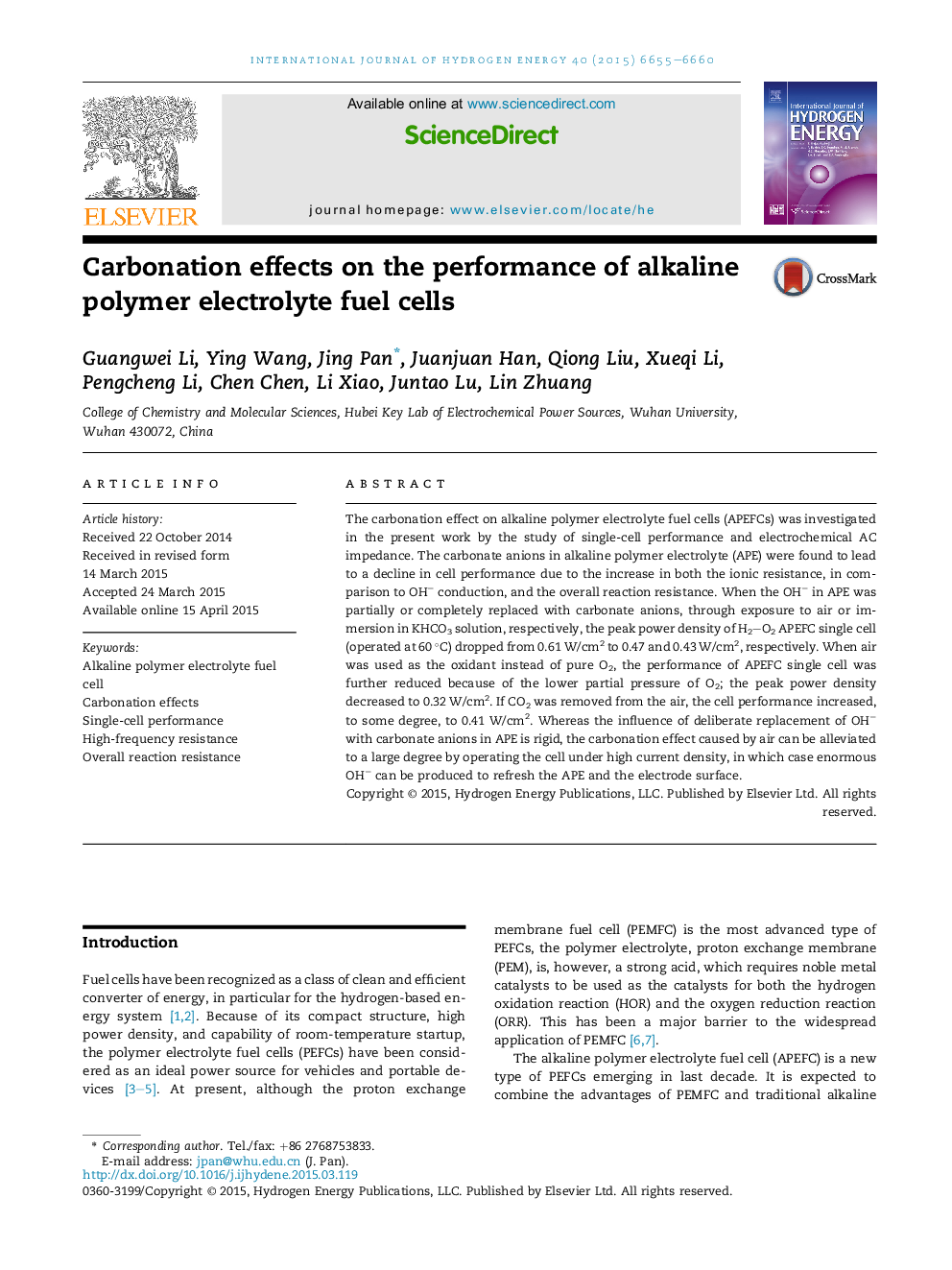| Article ID | Journal | Published Year | Pages | File Type |
|---|---|---|---|---|
| 1271461 | International Journal of Hydrogen Energy | 2015 | 6 Pages |
•Carbonation effects on the performance of APEFC were studied.•Carbonation anions lead to increase of ionic and overall reaction resistance in APEFC.•Low performance of H2-air APEFC due to low O2 partial pressure and CO2 contamination.
The carbonation effect on alkaline polymer electrolyte fuel cells (APEFCs) was investigated in the present work by the study of single-cell performance and electrochemical AC impedance. The carbonate anions in alkaline polymer electrolyte (APE) were found to lead to a decline in cell performance due to the increase in both the ionic resistance, in comparison to OH− conduction, and the overall reaction resistance. When the OH− in APE was partially or completely replaced with carbonate anions, through exposure to air or immersion in KHCO3 solution, respectively, the peak power density of H2–O2 APEFC single cell (operated at 60 °C) dropped from 0.61 W/cm2 to 0.47 and 0.43 W/cm2, respectively. When air was used as the oxidant instead of pure O2, the performance of APEFC single cell was further reduced because of the lower partial pressure of O2; the peak power density decreased to 0.32 W/cm2. If CO2 was removed from the air, the cell performance increased, to some degree, to 0.41 W/cm2. Whereas the influence of deliberate replacement of OH− with carbonate anions in APE is rigid, the carbonation effect caused by air can be alleviated to a large degree by operating the cell under high current density, in which case enormous OH− can be produced to refresh the APE and the electrode surface.
